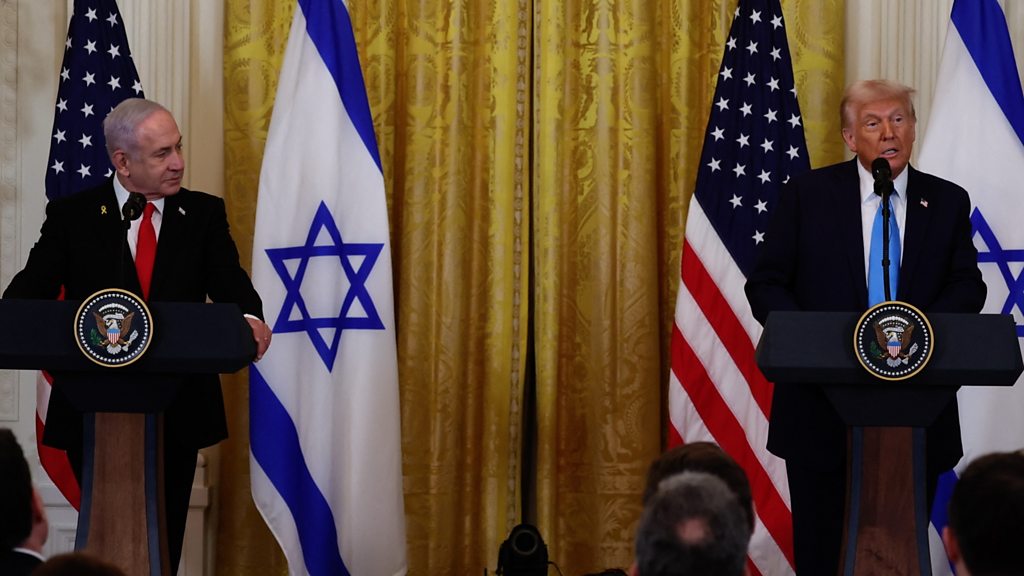Facebook Twitter (X) Instagram Somali Magazine - People's Magazine
As the US suggests taking control of Gaza, Egypt and Jordan propose an alternative strategy to rebuild the enclave without displacing Palestinians.
The meeting on Tuesday between Jordan’s King Abdullah II and US President Donald Trump ended with uncertainty about the future of Gaza. The main concern was Trump’s suggestion that the US should take control of Gaza and force Palestinians to move to Egypt and Jordan.
King Abdullah stated in an impromptu press conference that Arab countries, including Egypt, were working on an alternative plan to rebuild Gaza without displacing its people. Shortly after, Egypt confirmed it would present a comprehensive plan for Gaza’s reconstruction, ensuring Palestinians remain in their homeland. Egypt also reaffirmed its commitment to working with the US on achieving a fair resolution to the Palestinian issue.
Trump’s proposal raises serious concerns for Egypt. While it is unclear how determined Trump is about this plan, if he pushes forward, Egypt could face a difficult situation. The US has threatened to cut financial aid to Egypt if it does not cooperate. Given Egypt’s economic struggles with debt and inflation, losing this aid could have a major impact. Since 1946, the US has provided Egypt with over $85 billion in financial assistance, including military and economic support. In 2023 alone, Egypt was the fifth-largest recipient of US aid, receiving $1.45 billion, most of which went to the military.
The financial assistance represents more than just money. It is also a political statement, reinforcing Egypt’s position as a key US ally. However, internal stability is just as crucial as foreign support. Allowing the forced displacement of Palestinians could cause domestic unrest in Egypt. For decades, many Egyptians have viewed the Palestinian cause as an important political issue. Additionally, President Abdel Fattah el-Sisi is concerned about repeating Lebanon’s experience, where Israeli operations led to long-term occupation.
Until Trump changes his stance, el-Sisi has reportedly refused to participate in discussions at the White House. Instead, Egypt is working with other Arab nations on a counter-proposal. Political analysts suggest Egypt may have to make some compromises. One possibility is that Egypt, like Jordan, could agree to temporarily take in injured Palestinians and their families. King Abdullah has already stated that Jordan could accept 2,000 sick children. Egypt has been treating injured Palestinians in its hospitals since the start of the war and may expand this effort once border crossings reopen.
Egypt’s ability to contribute financially to Gaza’s reconstruction is limited due to its economic problems. However, the country is expected to play a major role in mediating and supporting political efforts. Israel has refused to pay for Gaza’s reconstruction, leaving the responsibility to Arab nations and the international community. Experts believe Gulf countries will be crucial in funding these efforts.
Egyptian construction companies are preparing to take part in rebuilding Gaza. Business tycoon Hisham Talaat Moustafa recently revealed that he is developing a plan involving 40 to 50 construction companies from Egypt and other countries. Some experts argue that rebuilding Gaza would be possible if basic necessities, such as tents and caravans, are allowed in. However, Israel has continued to block these supplies.
Gulf countries have already contributed significant aid to Gaza. In December 2023, the Gulf Cooperation Council announced that its member states—Bahrain, Kuwait, Oman, Qatar, Saudi Arabia, and the UAE—had donated $650 million in humanitarian aid to Gaza and the West Bank since October 2023. However, the total cost of reconstruction is expected to be much higher, as most of Gaza’s infrastructure has been destroyed.
With Trump’s controversial plan complicating the situation and a fragile ceasefire at risk of collapsing, Arab nations are under growing pressure to take decisive action.

